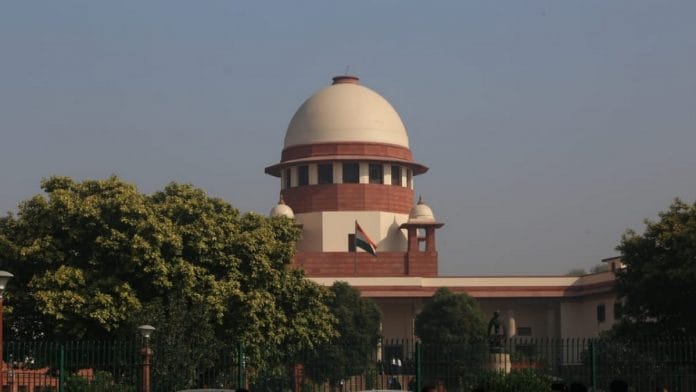New Delhi: A Constitution bench of the Supreme Court will Tuesday take up a curative petition filed by the central government to seek enhanced compensation for the victims of the 1984 Bhopal gas tragedy.
The bench will be headed by Justice Arun Mishra. Other judges on the bench are Justices Indira Banerjee, Vineet Saran, M.R. Shah, and Ravindra Bhat.
The Bhopal gas tragedy refers to a methyl isocyanate leak at the local facility of the US-based Union Carbide. The chemical is used in the production of pesticides, among other things, and is extremely toxic. As tonnes of the gas leaked out in December 1984, thousands were killed while lakhs are believed to have developed chronic health problems.
The curative plea stems from the court’s 1989 judgment ordering Union Carbide to pay $470 million, but this was not meant for victims, only the environmental and industrial damage caused by the leak. The company never made the payment as it refused to identify India’s jurisdiction.
The central government wants the sum revised to Rs 7,400 crore (just over $1 billion, by current exchange rate), saying the deaths and injuries presented before the court in the 1980s were inaccurate.
The curative petition states that 5,295 people died in the leak and not 3,000, the casualty figure on which the compensation was based.
The number of injuries, it adds, was much higher than 70,000 too.
The government wants Union Carbide held liable to make the payment. In November 2018, the central government sought an early listing of the curative petition, which was filed in December 2010, saying any further delay in the case will cause irreparable loss and damage.
In January 2019, the Supreme Court directed that the matter be listed for April of that year. The case will finally be taken up this week.
Also read: Abdul Jabbar, Bhopal gas tragedy’s oldest activist, turned ailing survivors into warriors
What has been this history of litigation in this case?
The Bhopal gas leak incident occurred on the night of 2-3 December 1984 at the Union Carbide India Limited (UCIL) pesticide plant in Bhopal.
It was one of the world’s worst industrial disasters, with an estimated 5 lakh people exposed to the gas.
Only the government has paid damages to the victims, out of its own pocket.
The victims have been fighting not just for adequate compensation, but also for criminal prosecution against the executives in charge at the time.
The then chairman of Union Carbide, Warren Anderson, was made the prime accused in the case, but subsequently declared an “absconder” when he failed to appear for trial. He died in 2014.
In 2010, a Bhopal court convicted seven people involved with Union Carbide and sentenced them to two years in jail.
The curative petition also seeks stricter punishment for the convicts, saying the accused had full knowledge of the “fatal design flaws of the plant”, including a complete lack of any emergency remediation facilities.
The material used to store methyl isocyanate, it says, was substandard, a choice “seemingly motivated by the desire to increase profits with reckless disregard to human life”.
The company had prepared no evacuation plan, the government adds, and the safety siren was not working on the night of the incident.
Also read: Bhopal Gas tragedy among world’s ‘major industrial accidents’ since 1919, says UN report







SC court will not hear CAA protests or Kashmir lockdown but Bhopal tragedy case again, done and dusted 37 years ago. After that the court could hear cases on Dani Handy height, Sabarimala Temple Entry issue, peacock sex matter and what not.
Great going SC. The court has acquired itself very well by safeguarding fundamental rights of citizens indeed.